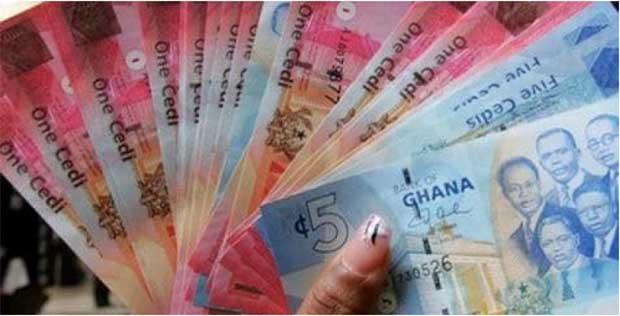Dr Gideon Boako, Technical Economic Advisor at the Office of the Vice President, has explained that the slight depreciation of the Cedi against foreign currencies in recent times is temporary.
What happened in the last two weeks could best be described as some turbulence in the market which culminated from the spillovers in the global economy, he added.
Speaking to Citi Fm, an Accra-based radio station Wednesday, he said local currencies of some key economies in Africa like Kenya, South Africa have also experienced same shocks.
He said the strong fundamentals that Ghana had – a downward trending inflation, huge international reserves which could guarantee four months of import cover, among others, presented shock absorbers.
“Even though there was a slight uptick in the value of the dollar relative to the cedi, this is something that is transient. It is not going to last for long. That is why we have seen the decline. And so the rate today is around 4.5 to 4.6. In relative terms, the cedi has been very strong.”
Anyone who is looking to get a dollar should be prepared to part with GH¢4.70.
Comparisons
Dr Boako noted: “If you compare the performance of the local currency as against the dollar for the first year of every new president, you can see that but for the performance of the regime of former President Kufuor, Nana Akufo-Addo stood tall. And in fact, if you really want to compare the first year of every president, President Akufo Addo’s has done the best.”
Last year, which is the first year of the president, “we had a depreciation of 4.9 percent. The next that performed so well was President Kufuor in 2001. The depreciation was 5 percent.”
“In fact, if you take that of President Mahama, his first year in 2013, the cedi depreciated by 14.5 percent. That of President Rawlings in 1993 was 35 percent. If you go to 1997, it went to 22.6 percent. In the same way, if you come to President Mills,’ it hovered around 20 percent. It was only in the first year of term of Presidents Kufuor and Akufo-Addo that that cedi depreciated by a margin of less than 6 percent.”
“The fundamentals of the economy are solid. Everyone who follows the statistics of Ghana’s economy very well will attest to this fact,” he highlighted.
Meanwhile, the Central Bank has blamed external factors for the depreciation of the cedi, stating that the situation is temporary.
“We want to assure the market that we have adequate reserves and the fundamentals do not support the slippages we have seen and we expect it to correct itself,” Director of Financial Markets Department at the Bank of Ghana (BoG), Steve Opata, told the media.
By Samuel Boadi


